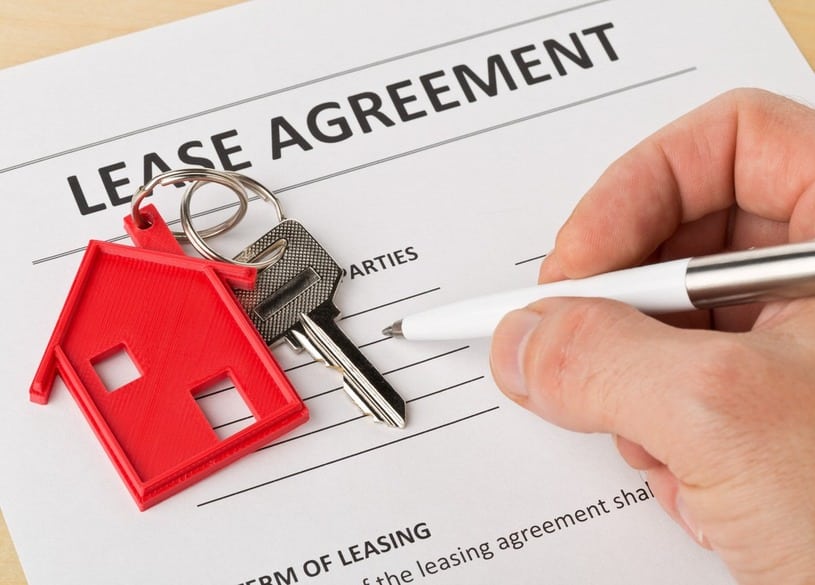Introduction to Dubai’s New Rental Laws
Dubai, known for its dynamic real estate landscape, has recently introduced significant changes to its rental laws. One of the notable requirements is that landlords must obtain a legal order if they seek a rent re-evaluation.
Explanation of the Rent Re-evaluation Requirement
Importance of the Legal Order
The legal order acts as a safeguard, ensuring that any rent adjustments are conducted through a formal legal process. This helps prevent arbitrary increases and ensures transparency in landlord-tenant transactions.
Impact on Landlords and Tenants
For landlords, this requirement signifies a shift towards more regulated practices, requiring them to justify any proposed rent adjustments. Tenants, on the other hand, benefit from increased protection against unfair hikes and have a legal recourse if they feel aggrieved.
Overview of Dubai’s Rental Market
Dubai’s rental market has experienced substantial growth and development over the years, with a diverse range of properties catering to various demographics. Rental trends have been influenced by factors such as economic conditions, demand-supply dynamics, and government regulations.
Reasons Behind the New Requirement
Addressing Rental Disputes
One of the primary motivations behind this requirement is to reduce the occurrence of rental disputes arising from unilateral rent increases. By formalizing the process through legal channels, the aim is to streamline negotiations and minimize conflicts.
Ensuring Fair Practices
The requirement also aims to promote fairness and equity in the rental market by standardizing the process of rent re-evaluation. This is crucial for maintaining a conducive environment for both landlords and tenants.
Process of Obtaining a Legal Order
Steps Involved
Obtaining a legal order involves following specific procedures outlined by Dubai’s regulatory authorities. This typically includes submitting relevant documentation, attending hearings if required, and obtaining approval from the appropriate legal bodies.
Legal Implications
Failure to obtain a legal order before initiating a rent re-evaluation can have serious legal consequences for landlords. It may result in penalties, fines, or other punitive measures, highlighting the importance of compliance with the regulatory framework.
Effects on Landlords
Challenges and Benefits
While complying with the new requirement may pose challenges for landlords, such as navigating legal procedures and additional paperwork, it also offers benefits. It promotes a more structured approach to rent adjustments, enhancing credibility and trust with tenants.
Compliance with Regulations
Landlords are expected to familiarize themselves with the updated regulations and ensure compliance to avoid any legal liabilities. This may involve seeking legal advice or engaging professional services to facilitate the process.
Impact on Tenants
Rights and Protections
Tenants stand to gain from the requirement as it strengthens their rights and protections against arbitrary rent increases. It empowers them to challenge unjustified hikes and negotiate terms more effectively.
Negotiation Power
With the backing of a legal framework, tenants have increased negotiation power when discussing rent with landlords. This helps create a more balanced dynamic in landlord-tenant relationships.
Comparison with Previous Regulations
Changes and Improvements
The new requirement represents a significant departure from previous regulations, which may have been less stringent or ambiguous. It reflects a commitment to enhancing regulatory oversight and protecting the interests of all stakeholders.
Feedback from Stakeholders
Stakeholders, including landlords, tenants, and real estate professionals, have offered varying perspectives on the changes. While some welcome the increased clarity and accountability, others may express concerns about the potential administrative burden.
Legal Implications for Non-Compliance
Penalties for Violating the Requirement
Non-compliance with the requirement can lead to penalties imposed by regulatory authorities. These penalties may vary depending on the severity of the violation and could include fines, suspension of rental privileges, or legal action.
Enforcement Measures
Dubai’s regulatory bodies are tasked with enforcing compliance with the requirement and ensuring adherence to established guidelines. This may involve conducting audits, issuing warnings, or taking legal action against non-compliant parties.
Response from Real Estate Industry
Reactions and Adjustments
The real estate industry is adapting to the new regulatory landscape, with stakeholders adjusting their practices to align with the requirements. This may involve updating policies, enhancing transparency, and investing in compliance measures.
Compliance Strategies
Real estate professionals are developing strategies to facilitate compliance with the requirement while minimizing disruptions to operations. This may include training staff, implementing new procedures, and leveraging technology for efficient documentation management.
Potential Challenges and Concerns
Implementation Issues
The successful implementation of the requirement relies on effective coordination between regulatory authorities, landlords, tenants, and other relevant stakeholders. Addressing potential challenges, such as procedural delays or resource constraints, is essential to ensuring smooth execution.
Transparency and Accountability
Ensuring transparency and accountability in the rent re-evaluation process is critical for maintaining trust and confidence in the regulatory framework. Measures to enhance transparency, such as public disclosure of rent adjustments, can help address concerns related to fairness and integrity.
Benefits of the New Requirement
Stability in the Rental Market
By promoting a more regulated approach to rent re-evaluation, the requirement contributes to stability in the rental market. This benefits both landlords and tenants by fostering a predictable and secure environment for property transactions.
Improved Landlord-Tenant Relationships
Clear guidelines and legal mechanisms for rent adjustments foster better communication and understanding between landlords and tenants. This, in turn, contributes to stronger relationships built on mutual respect and cooperation.
Future Outlook
Predictions for the Rental Market
The implementation of the new requirement is expected to have a lasting impact on Dubai’s rental market, influencing rental trends, investment decisions, and regulatory developments. Monitoring market dynamics and adapting to evolving conditions will be crucial for all stakeholders.
Conclusion
In conclusion, Dubai’s new requirement for landlords to obtain a legal order before seeking a rent re-evaluation marks a significant step towards ensuring fair and transparent practices in the rental market. While it may pose initial challenges, the long-term benefits include a more stable and predictable environment for both landlords and tenants. Contact Us
FAQs
- Can landlords increase rent without a legal order?
- No, landlords must obtain a legal order if they wish to seek a rent re-evaluation.
- What happens if a landlord fails to obtain a legal order?
- Failure to obtain a legal order before initiating a rent re-evaluation can result in penalties, fines, or other punitive measures.
- How can tenants benefit from this requirement?
- Tenants benefit from increased protection against unfair rent increases and have a legal recourse if they feel aggrieved
- What is the impact on the real estate industry?
- The real estate industry is adapting to the new requirement by adjusting practices to align with the regulations.
- Are there any exemptions to this requirement?
- Exemptions may apply in certain circumstances, but landlords are advised to seek legal advice to understand their obligations fully.









